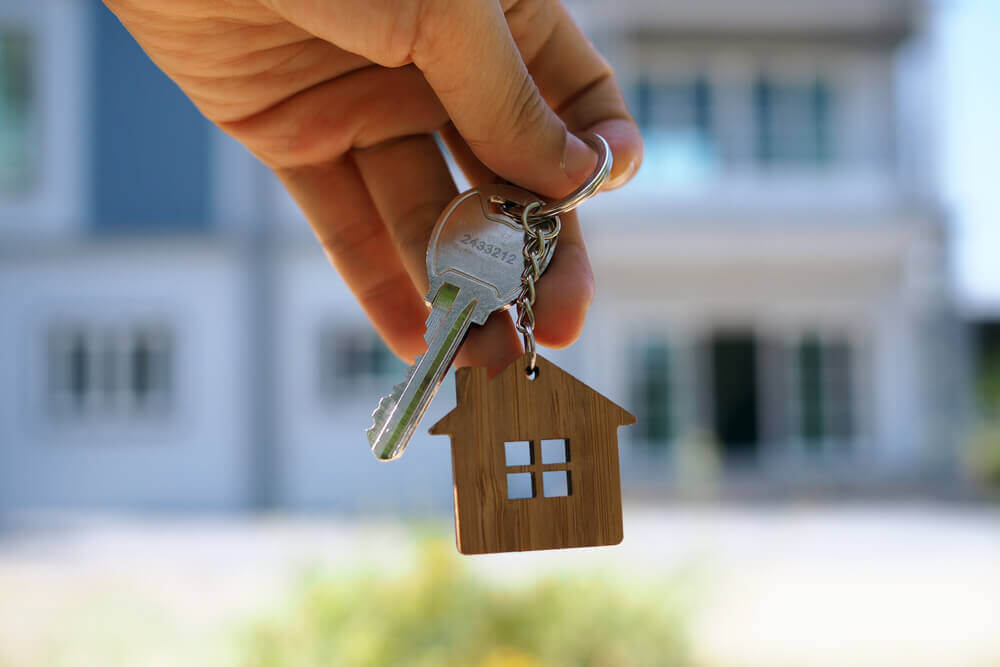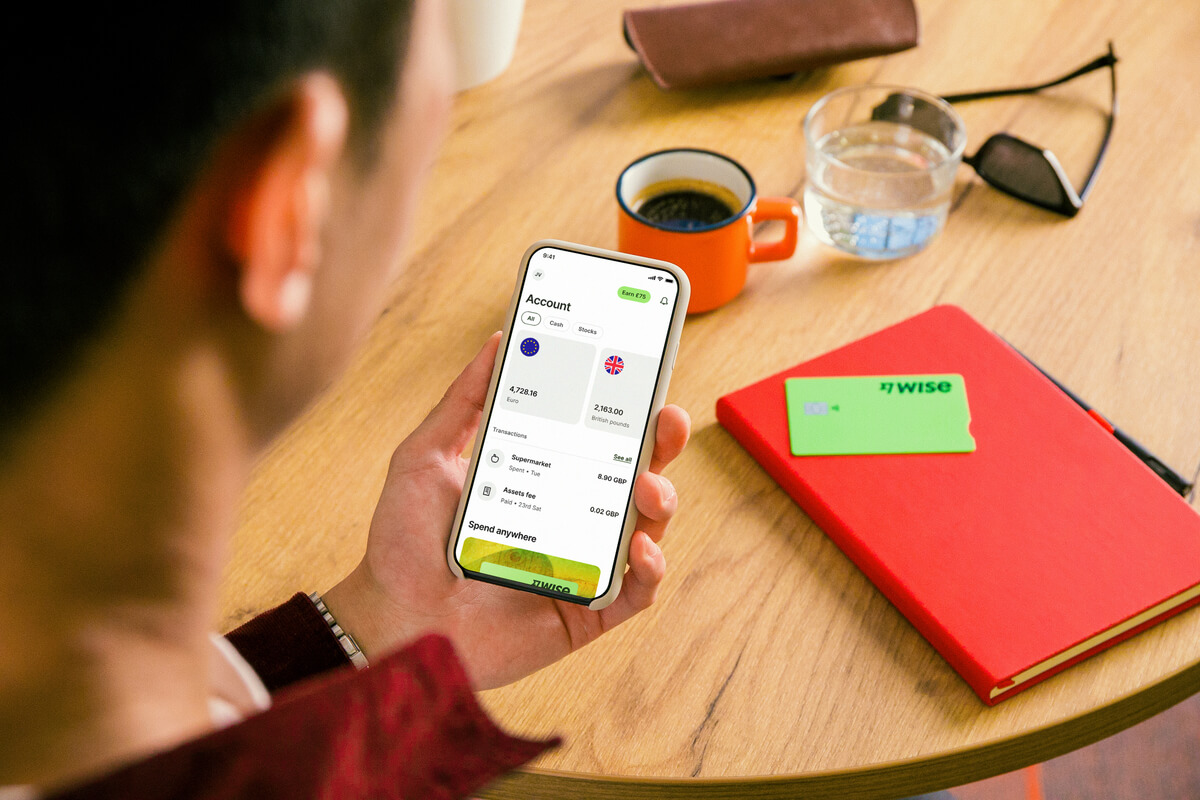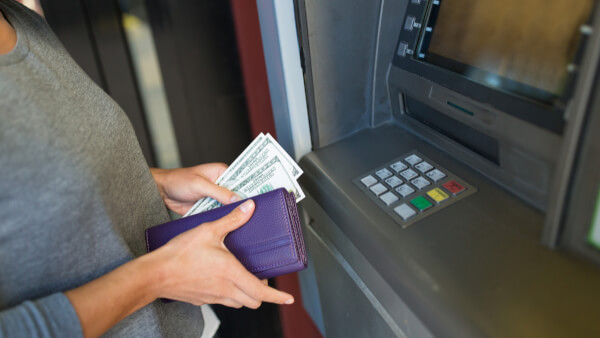How to withdraw money from YouTrip: Transfer to bank account
Want to transfer money from YouTrip to your bank account? Find out how to withdraw money directly from your YouTrip balance.

Disclaimer: The information in this article is for reference purposes only.
Wise does not offer to buy or sell stocks, and all information on this page should not be considered financial advice.
All investment decisions should be made after thorough research and consultation with a qualified financial advisor. Remember that investments, even in low-risk funds, are never guaranteed and your capital is at risk
Known as the land of smiles, Thailand is a super popular destination with vibrant cities, dreamy beaches, and a fairly low cost of living compared to Singapore. If you’ve fallen in love with the country you may be planning to buy a place there - either for full time or occasional use.
Wondering - Can a Singaporean buy property in Thailand - and what are the rules and restrictions you need to know about? This guide is for you. And as a bonus we’ll also introduce Wise for a safe, fast and flexible way to send money to Thai baht when you buy your new home.
| Table of contents |
|---|
Unfortunately, the answer to the question - can foreigners buy property in Thailand - is not as straightforward as you might like it to be.
Basically, as a foreigner you can buy some apartments and condo units - but it’s harder to own land1.
We’ll explore this more in detail later, but as you can imagine, with some pretty strict rules in place, it’s important to get good local advice before you even consider buying a property in Thailand. That said, it’s a well trodden path - there are good local property lawyers and specialists who can help expats navigate unfamiliar rules to get their new place without unnecessary hassle.
Navigating a foreign property market can be fraught. In Thailand you have added issues including rules which govern which properties are available to foreigners, an unregulated real estate market, and some common issues with title deeds. Getting a good local lawyer who specialises in property and has helped expat buyers before is essential.
Here’s an outline of the property purchase process in Thailand:
You may be able to buy a place in Thailand - but rules apply:
Banks decide who they offer loans to - which means that in theory you can get a home loan as a foreigner in Thailand, but in practice your options may be a bit limited.
If you’re a resident in Thailand with a work permit and income you’ll likely find more banks which can accept your application for a home loan. You’ll need to shop around to see which options are open to you - and which has the best terms based on your individual needs.
It's helpful to know that there’s a branch of Bangkok Bank2 in Singapore, which advertises home loans. Eligibility criteria will apply, but it may be worth a chat to see if they can help you with your Thai purchase. If you can’t get a loan in Thailand, you may find you can take a mortgage with an international lender instead.
| ✈️ Travelling to Thailand before making your property purchase? Check out our handy guide on what you need to know before going there |
|---|
The Thai property market is not as regulated as the market here in Singapore. So the first thing to note is that due diligence checks are absolutely crucial when buying a place in Thailand. A reputable lawyer can help with this - but buyer beware is definitely in play here.
Other considerations may be closer to home - for example, whether or not you’ve fulfilled the Minimum Occupancy Conditions (MOC) on any HDB you own3. This requires you to live in the property for 5 years or more depending on the specific unit. If you’re still in your MOC you can’t buy another private property here or overseas. Double check the rules if you’re not sure about your specific HDB unit, so you don’t fall foul of the law.
Thailand is known to be a super friendly and easy place - but the key issue you’re likely to face if you plan to move there is visas.
Singapore passport holders may get visa free entry as a tourist in Thailand for up to 30 days. But if you’re going there to work, study, or live for longer than that, you’ll need to get the right visa for your situation. Check out the Thai Royal Embassy in Singapore which has a very helpful section on visas for different needs4.
It’s no surprise that some of the best known places in Thailand also have the most costly real estate. Median condo prices in Phuket come in at a reported 230,000 SGD, and Bangkok’s average apartment prices are even higher.
For a cheaper deal, Chiang Mai condos start at something like 100,000 SGD as a median price. Chinag Mai is very well connected and has beautiful scenery - but you do sacrifice the city vibe, and you don’t have the proximity to the coast you do in many Thai cities.
If you’re thinking more of somewhere close to the beach but with a lower price tag than Phuket, Koh Samui condos are likely to cost around 150,000 SGD on average. However, as you’d expect, location is everything here - some places are far more expensive and you can also pick up bargains if you don’t mind being a bit further away from the sea.
Ultimately, there’s a huge range in prices across most locations in Thailand so it’ll require a bit of solid research to find the right place - at the right price - for your needs.

If you’re buying a new home in Thailand you’ll need safe, easy and low cost ways to send money from Singapore to Thailand. Meet Wise.
Open your Wise account online or in app, to send fast or even instant payments to 160+ countries, including Thailand, with the mid-market exchange rate and conversion and transfer fees from just 0.33%. You’ll be able to pay using a local payment method like PayNow, your bank account or debit card, and your money will be deposited to your recipient’s bank account in Thailand - over 60% of transfers arrive in seconds, and 90%+ are there in 24 hours.
Once you’re in Thailand you can also use your Wise account to hold and exchange 40+ currencies, and your Wise card to spend and make ATM withdrawals whenever you need travel cash. That’s simple, flexible and cheap - so you can get on with settling into your new home, with one less thing to worry about.
Pricing/fees: Please see Terms of Use for your region or visit Wise Fees & Pricing for the most up to date pricing and fee information
So - when it comes to buying a property in Thailand as a Singaporean, you’ll certainly be able to find a place, but there are some quite important rules, restrictions and considerations to know about. Not all properties are available to foreigners in Thailand - while you can usually buy a condo or apartment unit, you’ll need to also make sure the development meets its quota for foreign owners, or it’ll be off the table for you as an overseas buyer.
There are also some inbuilt hazards - when buying in any foreign market. The real estate market in Thailand isn’t as regulated as it is here in Singapore, and the way it works will vary. Being aware of this, and getting local help is crucial to make sure the purchase goes smoothly.
Sources:
*Please see terms of use and product availability for your region or visit Wise fees and pricing for the most up to date pricing and fee information.
This publication is provided for general information purposes and does not constitute legal, tax or other professional advice from Wise Payments Limited or its subsidiaries and its affiliates, and it is not intended as a substitute for obtaining advice from a financial advisor or any other professional.
We make no representations, warranties or guarantees, whether expressed or implied, that the content in the publication is accurate, complete or up to date.

Want to transfer money from YouTrip to your bank account? Find out how to withdraw money directly from your YouTrip balance.

Buying property in China as a Singaporean? Learn more about how to buy, where to buy, restrictions and requirements.

Learn more about the GXS Debit Card including its requirements, eligibility, fees and more.

Looking for the best USD accounts in Singapore? Read more here about what USD accounts can you open in Singapore

Whether you have a business and receive money from abroad or you make personal money transfers, we covered 6 best PayPal alternatives in Singapore

Wondering how to get a proof of address in Singapore? Read more here about acceptable proof of address documents.